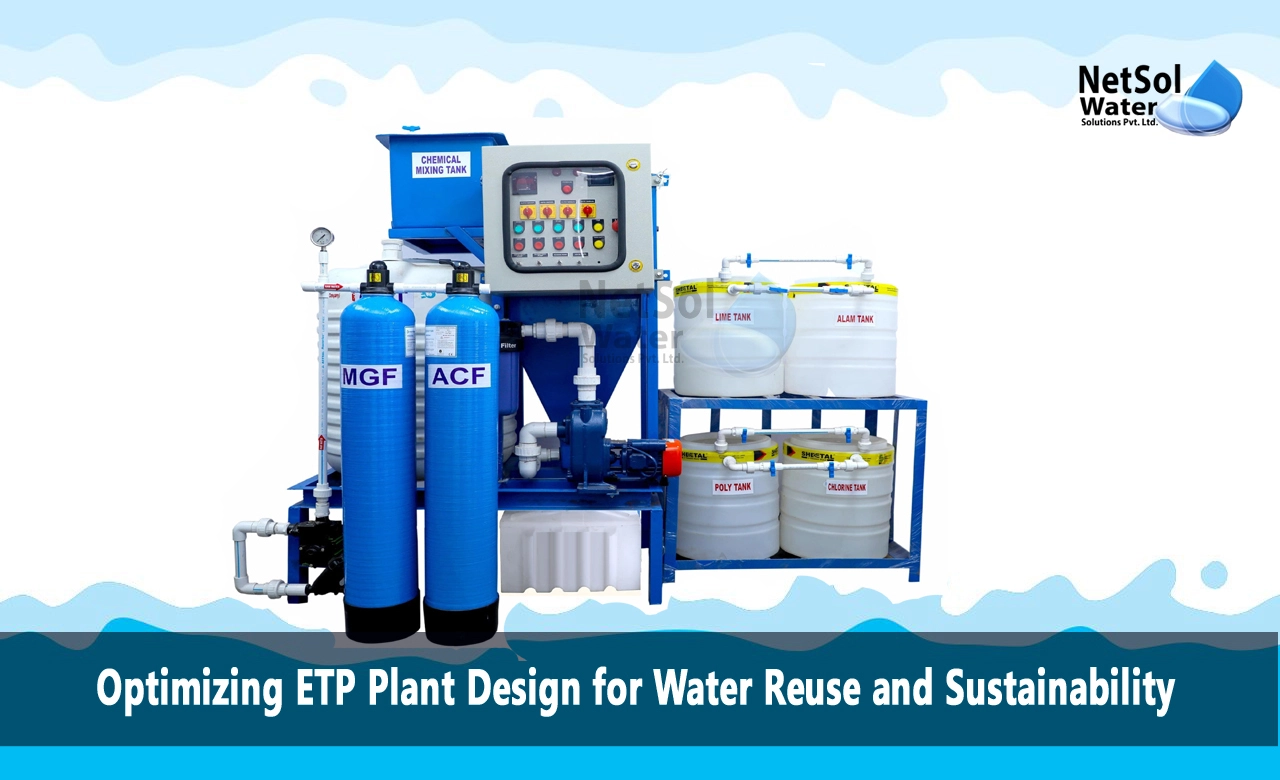Optimizing ETP Plant Design for Water Reuse and Sustainability
As water scarcity intensifies globally, the reuse of treated effluent is becoming an increasingly essential strategy. Utilising recycled water from effluent treatment plants reduces demands on strained natural water resources. However, designing facilities for safe and sustainable water reuse requires an integrated approach addressing advanced treatment, energy management, and environmental synergies.
Advanced Treatment Processes
Conventional primary and secondary wastewater treatment processes are not enough for water reuse applications. Recycled water must meet stringent microbiological and chemical standards based on the intended application, whether irrigation, industrial use or even indirect potable reuse. Tertiary filtration, nutrient removal, and disinfection systems tailored to reuse criteria should be specified during plant design stages. Treatment add-ons can be disruptive and costly after construction. Membrane bioreactors provide an integrated approach combining biological treatment with ultrafiltration for excellent effluent quality. Design choices should balance treatment needs with affordability and practicality.
Energy Reduction and Recovery
Effluent treatment is an energy-intensive process. Pumping, aeration, and advanced treatment methods require substantial power input. Designing plants for lower energy usage and potential energy recovery helps improve sustainability. Optimising hydraulic flow balancing and equipment selection reduces energy demands. Installing variable frequency drives, premium efficiency motors and diffusers cut power use. Anaerobic pretreatment creates biogas for cogeneration. Onsite renewables like solar, wind or hydropower can offset imported electricity as well. Treatment process optimisation and control tuning further minimise energy waste.
Water Recovery and Reuse
The plant design itself can incorporate water reuse at multiple points. Treated process water should be recycled for utility purposes like machinery cooling. Reverse osmosis brine can be recovered as feed water rather than discharged. Rainwater harvesting for site irrigation and low-quality uses reduces the need for fresh water. Setting design criteria for maximum water recovery enhances reuse potential. Detailed water and mass balances help identify recycling opportunities. Installing dedicated pipe infrastructure makes reuse simpler to implement, both within the plant and for the distribution of recycled effluent to local users.
Co-Digestion and Resource Recovery
Accepting high-strength organic waste streams provides additional revenue opportunities and environmental benefits. Codigesting fats, oils, and food waste with sewage sludge boost biogas generation. The increased methane production can support combined heat and power systems. Resource recovery systems extract nutrients like phosphorous and nitrogen from residual biosolids for use as fertilisers. Thermal processing can convert biosolids to renewable biofuels. Specifying resource recovery equipment and integrating co-digestion infrastructure expands the plant from waste treatment to material and energy production.
Buffer Zones and Odor Control
Sufficient buffer space is essential to minimise offsite impacts, as effluent treatment plantscan generate nuisance odours. Vegetative buffers containing trees, grass and other plants filter air emissions and attenuate noise. Designated truck cleaning areas limit nuisance particulate matter. Architectural elements like enclosed loading bays reduce offsite odour transport.Treatment process controls and containment features can mitigate the release of objectionable emissions. Specifying premium mist and gas adsorption systems where needed limits the venting of harmful fumes. Odor-neutralizing chemical injection is another option for supplemental control.
Stormwater Management
Onsite stormwater management is necessary to avoid overloading the treatment plant during heavy rains while also recharging local water supplies. Installing permeable pavement, retention ponds, and green roofs reduces runoff volumes and mimics natural hydrology. Rain gardens with native vegetation filter and infiltrate stormwater. Integrating stormwater best management practices enhances the facility’s role in local watershed conservation. Designated wet weather flow paths and storage prevent impacts from high inflows. Ample headworks capacity provides hydraulic relief during extreme events.
Automation and Process Control
Automating treatment systems and implementing advanced process control improves plant performance, efficiency and stability. SCADA technology connects critical equipment and monitors essential parameters enterprise-wide. Sophisticated algorithms optimise processes dynamically based on operating conditions. Early warning of potential issues enables rapid response by staff.Control systems design should incorporate both hardware needs and software capabilities for expanded monitoring, data management and smart optimisation. Open architecture allows phased implementation and future upgrades as technology progresses. More intensive process automation lightens labour requirements as well.
Conclusion
Transitioning effluent treatment plants from basic waste processing to drivers of water conservation and sustainability requires a holistic outlook starting at the design phase. There are many avenues available today for plants to become net producers of resources rather than just waste assimilators. Prioritising advanced treatment, energy optimisation, water reuse, recovery of valuable byproducts, and environmental performance in the fundamental design sets plants on the path to better fulfilling their environmental purpose.
Netsol Water is Greater Noida-based leading water & wastewater treatment plant manufacturer. We are industry's most demanding company based on client review and work quality. We are known as best commercial RO plant manufacturers, industrial RO plant manufacturer, sewage treatment plant manufacturer, Water Softener Plant Manufacturers and effluent treatment plant manufacturers. Apart from this 24x7 customer support is our USP. Call on +91-9650608473, or write us at enquiry@netsolwater.com for any support, inquiry or product-purchase related query.



